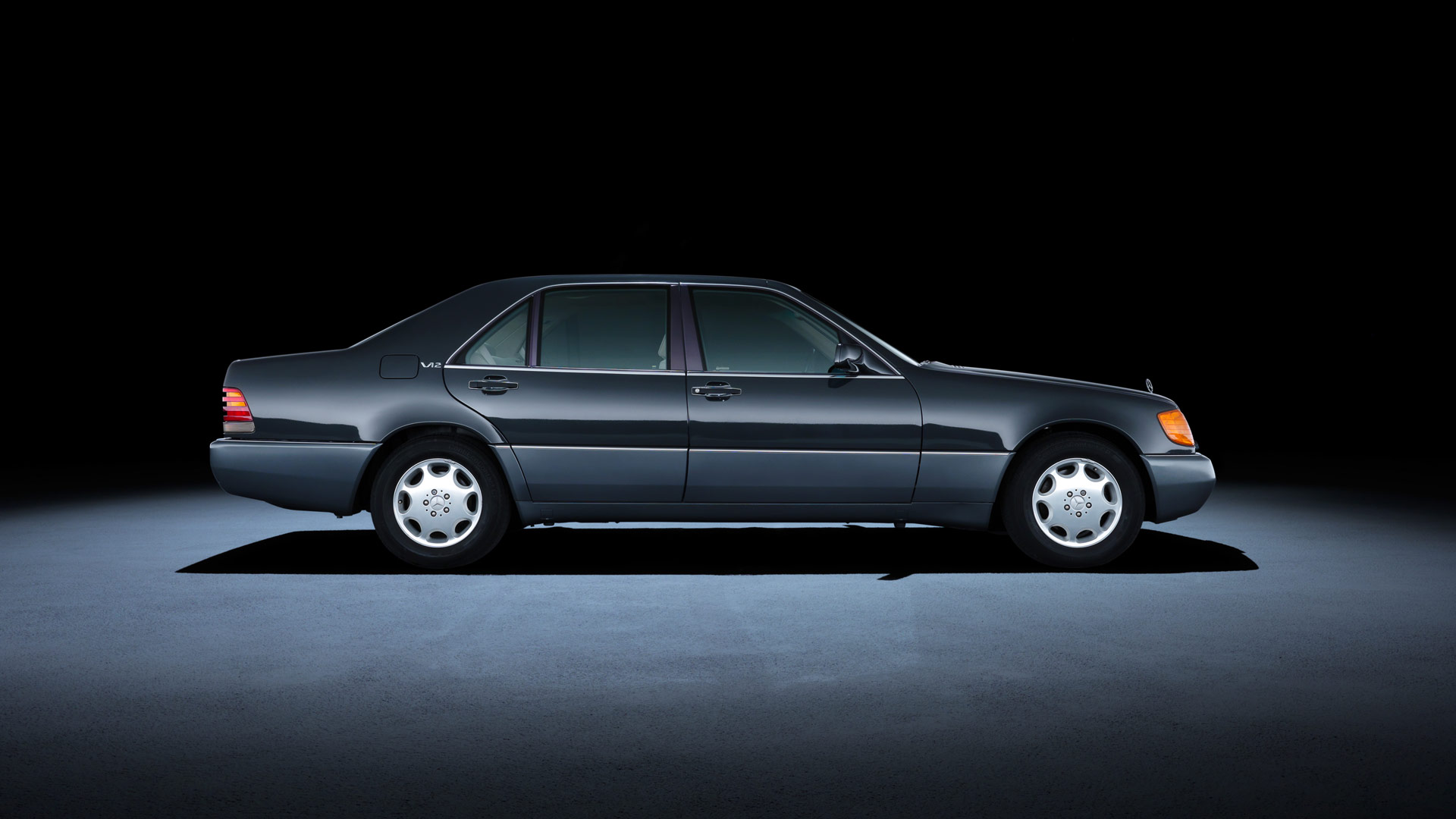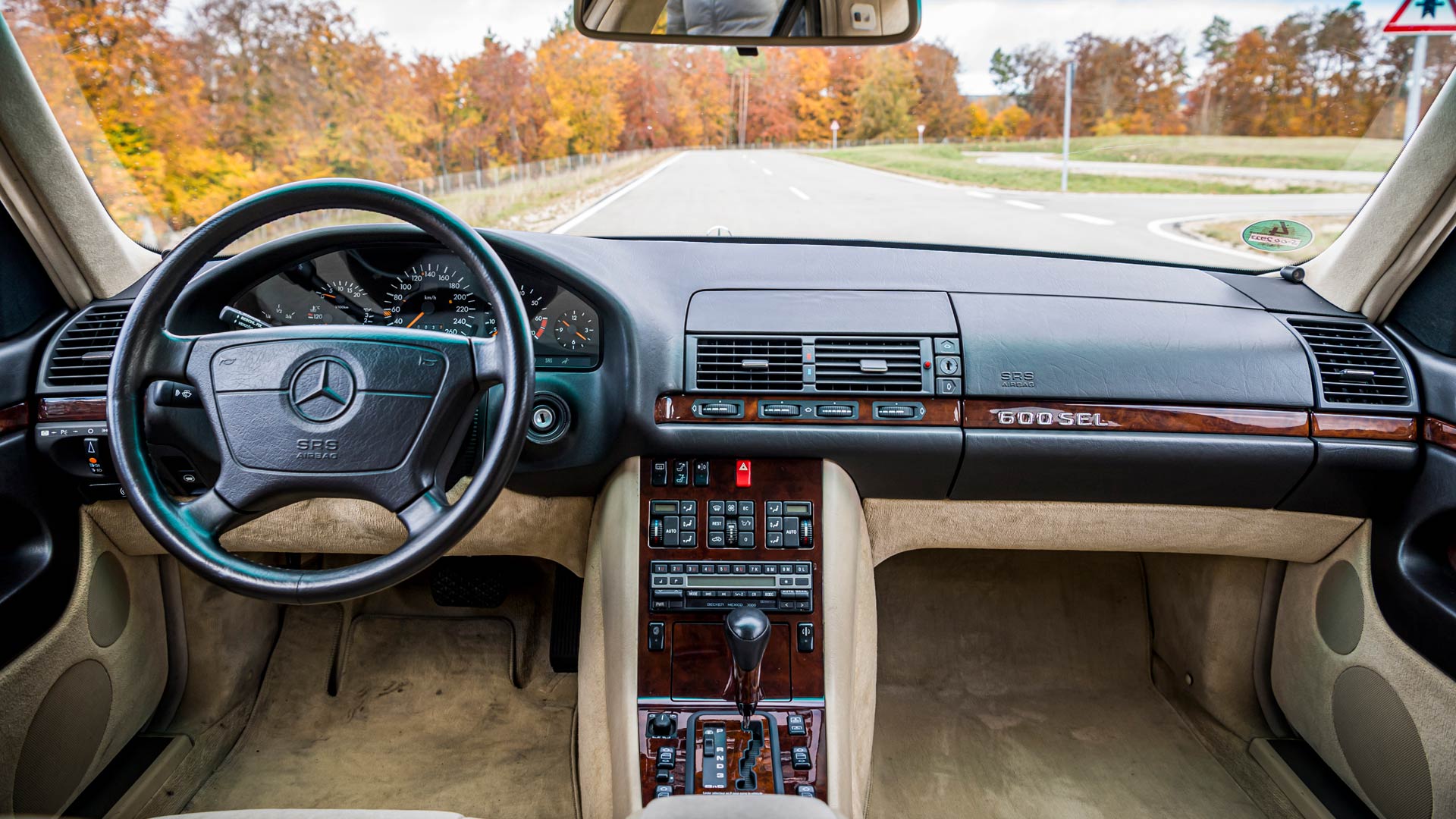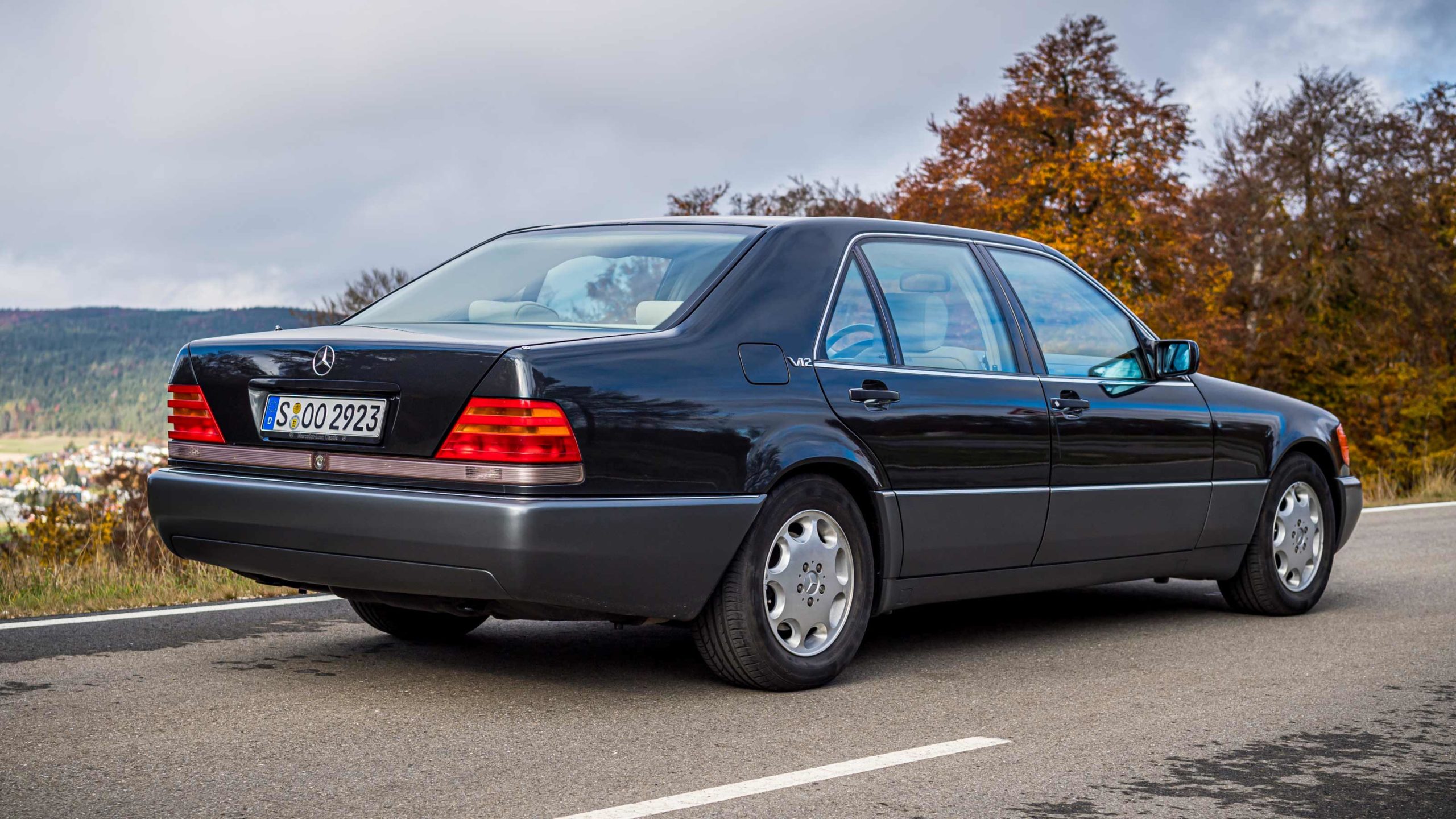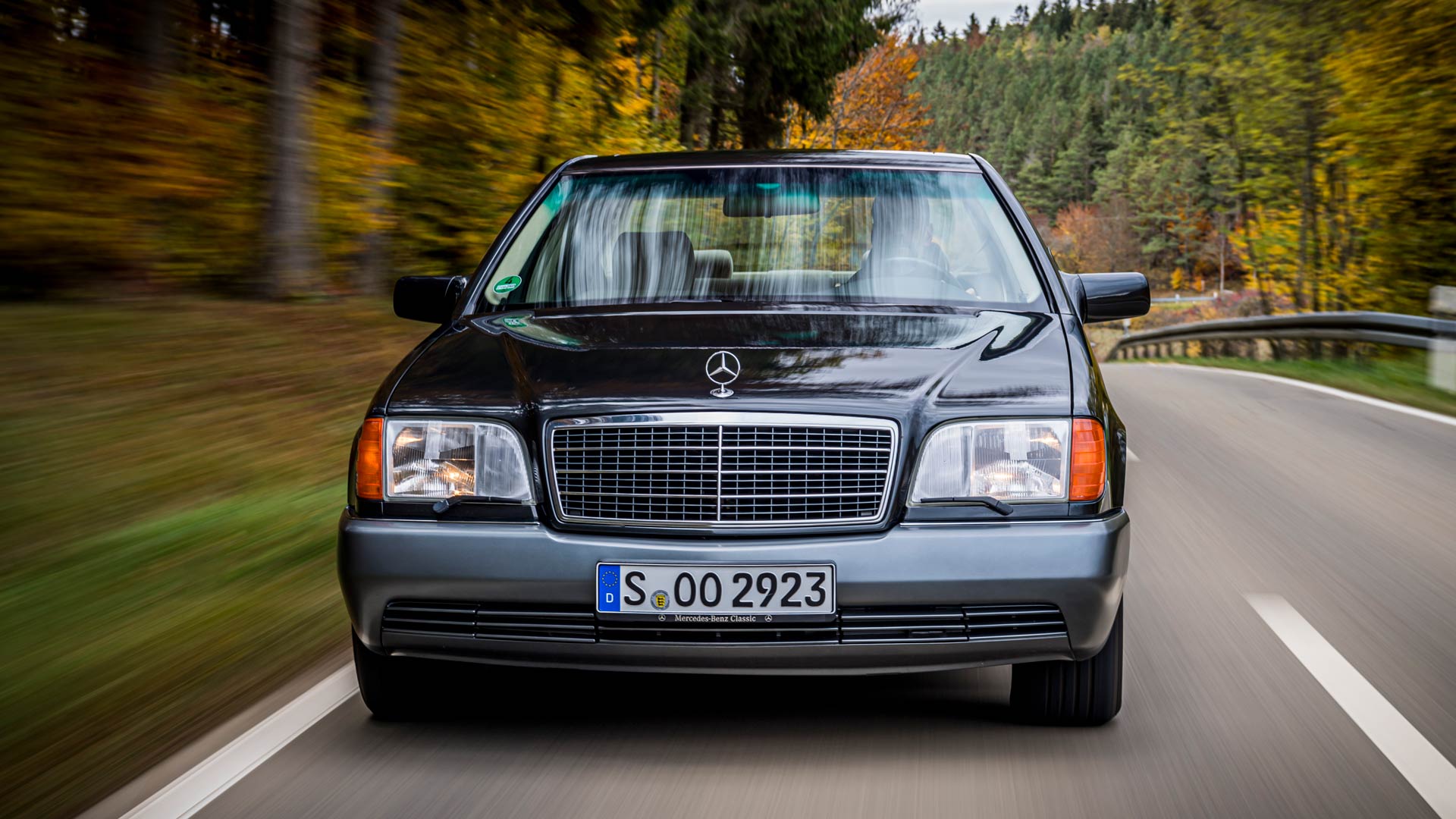The latest Maybach edition of the 2021 Mercedes-Benz S-Class has been causing a stir on social media. However, if the brand-new model is just too ostentatious, we have a solution from the 1990s.
Those who prefer Mercedes-Benz cliches such as “vault-like construction” and “over-engineered design” can always turn to the W140 S-Class saloon.
What makes it more special is that this big Benz is now eligible for classic status in Germany.
Function over form

Development of the third-generation W140 S-Class began in 1981, and continued throughout the Eighties. Stories suggest that Mercedes-Benz spent more than $1 billion to create it, and that the project overran by 18 months.
For some, the W140 represents the last time the S-Class was an engineering-led model, rather than having budgets and marketing appeal dictate the design.
It did still manage to prove controversial when new. Compared to the previous model it was substantially larger, featuring slab-sided styling and a bold front grille. Even the W140’s stylist, the famed Bruno Sacco, was said to have been unconvinced by the finished article.
But the grander construction was intended to help the S-Class find new buyers. North America and Asia were particular targets when it finally went on sale in 1991.
German techno revolution

The W140 was packed with technical innovations when launched, such as the use of double-glazed insulating side windows to reduce noise.
Later models would gain features like Electronic Stability Program, xenon headlights, and automatic rain-sensing windscreen wipers. Linguatronic voice commands, and GPS navigation, would also make a Mercedes-Benz debut in the W140 series.
Engine choices ranged from the 2.8-litre inline-six S280, through to the flagship S600 with its 6.0-liter V12. European buyers would also get the first chance at owning a diesel S-Class with the W140. Previously diesel-powered models had been solely reserved for North America.
Hey there, Old Timer!

Such innovations proved successful, with Mercedes-Benz selling more than 406,000 examples between 1991 and 1998. Improved anti-corrosion measures should mean there are plenty of examples of the W140 still left.
Under Federal Ministry of Transport rules, a car becomes eligible for classic status in Germany 30 years after first registration. This allows it to have a special number plate fitted, resulting in reduced road tax and the ability to enter low emission zones.
To become an ‘Old Timer’, each car has to be individually assessed as being in a good state of repair, and to be recognised as being a historic or cultural asset.
Preserving automotive heritage

This means the car should resemble how it left the factory, and only modifications that could have been made in the first ten years after registration are allowed.
Adding upgraded brakes from a performance model built at the same time would be fine. On the other hand, dropping in an engine from a new 2020 car would be verboten.
The increased everyday usability of cars hitting the 30-year mark means Germany is seeing a boom in Old Timer registrations. Figures at the start of 2020 showed more than 595,000 vehicles wearing classic number plates across the country.
Next year should see the W140 add more to that number.
ALSO READ
Brexit deal ‘uncertainty’ for UK classic car industry



[…] Mercedes-Benz Museum in Stuttgart is renowned for its extensive collection of historic […]
[…] is also an international one to define the status of a car as historic. In Germany, a car becomes eligible for classic status 30 years after first […]